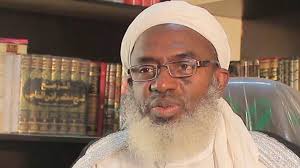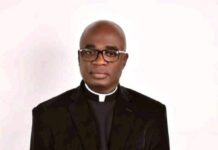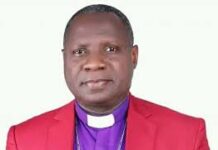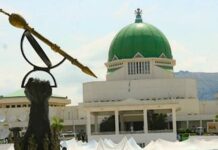By Shu’aibu Usman Leman
Public discourse in Nigeria is rarely short of drama or strong opinions. Yet, from time to time, a statement emerges that pierces the national conscience and forces a moment of sobering reflection on our collective values.
Sheikh Ahmad Gumi’s recent assertion that Christian communities in the Middle Belt have been “staging” mass killings by burying empty coffins is one such profoundly troubling claim. It is not only baseless; it is callous and insensitive to the countless families still mourning genuine and painful losses.
In a country where tragedy has become almost routine, suggesting that victims are imaginary or that public mourning is a choreographed performance is deeply shocking. Nigerians across broad swathes of the nation have buried parents, children, neighbours, and friends who never returned home after falling to relentless violence. To trivialise their suffering is to reopen emotional wounds that have barely begun to heal.
While debates over terminology—such as whether the persistent killings in the Middle Belt constitute genocide—are understandable, the reality of the killings is not debatable. These tragedies are extensively recorded by local communities, the media, and civil society organisations. They form part of a painful, well-documented national reality.
Regions such as Plateau, Benue, Southern Kaduna, and parts of Taraba bear visible scars from years of repeated attacks. The graves are real. The widows, orphans, and displaced families are not participants in a staged event. Denying the authenticity or scale of their loss strips them of their humanity and dignity.
Unsurprisingly, Christian leaders reacted with outrage. Reverend Ezekiel Dachomo’s solemn offer to accompany Gumi to mass-grave sites speaks to the depth of the hurt caused by such reckless remarks. When a respected religious figure expresses a willingness to physically open graves in the presence of security agencies just to prove that victims are real, it demonstrates the corrosive power of irresponsible rhetoric.
The Pentecostal Fellowship of Nigeria (PFN) echoed this sentiment, correctly describing Gumi’s comment as inflammatory and baseless. Their response reflects a broader expectation that religious leaders, because of their influence, must speak with caution, empathy, and responsibility. Careless words from such figures can heighten mistrust and inflame already-tense social relations.
Nigeria’s rich diversity should be a source of national strength. Too often, however, it becomes a fault line when leaders fuel suspicion or resentment. Unverified public statements can harden attitudes, escalate long-standing grievances, and undermine painstaking peacebuilding efforts.
What makes Gumi’s allegation, especially unfortunate, is its timing. Nigeria is currently grappling with multiple overlapping security crises, rampant banditry in the North West, insurgency in the North East, and persistent violence in the Middle Belt. Public confidence is fragile, and communities are anxious. In such conditions, rhetoric that inflames emotions only complicates efforts to find lasting solutions.
Rather than focus the nation’s attention on the urgent need for security reforms, such provocative statements distract from practical steps required to address the root causes of insecurity—strengthening intelligence gathering, expanding community policing, and tackling socio-economic drivers of violence.
When public figures delegitimise documented acts of violence, they inadvertently embolden perpetrators.
If victims’ experiences are dismissed as theatrics, public resolve to demand justice weakens, creating an environment where impunity thrives.
The implications extend internationally as well. Global observers and humanitarian organisations have consistently raised concerns about the scale of violence in Nigeria. Reckless statements risk misleading the international community at a time when Nigeria needs credibility, cooperation, and support to navigate complex security challenges.
The concerns expressed abroad are not fabricated. They stem from years of documented attacks, displacement, and humanitarian crises. Regardless of disagreements about labels, the violence is real and continues to draw global attention because of its human cost.
Despite the divisiveness of such rhetoric, Nigerians must avoid equally divisive reactions. The words of one individual—no matter how prominent, should not deepen existing religious or ethnic fractures. Pain has no tribe; sorrow has no creed. Communities in mourning deserve solidarity, not further polarisation.
This delicate moment calls for leadership anchored in truth. Religious, traditional, and civic leaders must correct misinformation, reduce tensions, and promote narratives that build bridges. Nigeria cannot afford further fragmentation.
Influence comes with responsibility. Careless or malicious words can deepen prejudices and destabilise vulnerable regions.
At a time of eroding national trust, leaders must understand the weight of their utterances.
Progress requires unwavering commitment to truth, fairness, and justice.
Every act of violence must be acknowledged and condemned, regardless of who the victims or perpetrators are. Only through impartiality can Nigeria build a security framework that protects all citizens.
We owe the dead respect and dignity. Their memories must never be dismissed or exploited. Each grave represents a national failure and a family’s heartbreak.
To deny their existence is to diminish our shared humanity.
Healing requires compassion—listening to survivors, validating their pain, and resisting the politicisation of tragedy.
It demands courage to challenge falsehoods with clarity and firmness.
At this fragile juncture, Nigeria needs calm, principled voices—leaders who understand that careless speech can deepen wounds that already run dangerously deep.
Our challenges are too complex to be trivialised by sensational, unverified claims.
The grieving families across the Middle Belt, the North West, and the North East deserve truth, dignity, and justice, not denial or distortion. Our duty is to stand with them, honour their pain, and ensure their losses are never questioned.
Only then can we hope to begin genuine healing and build a nation where every life truly matters.
Leman is a former National Secretary of the Nigeria Union of Journalists (NUJ).










